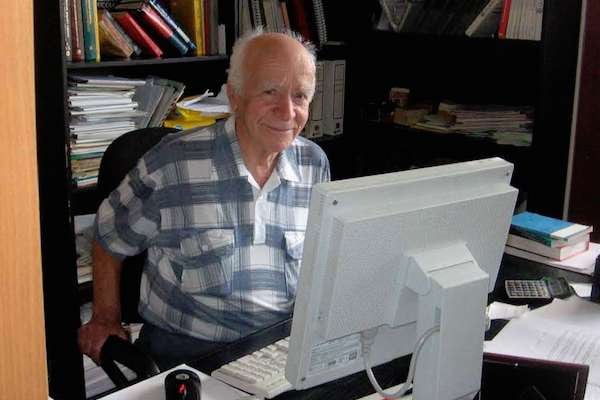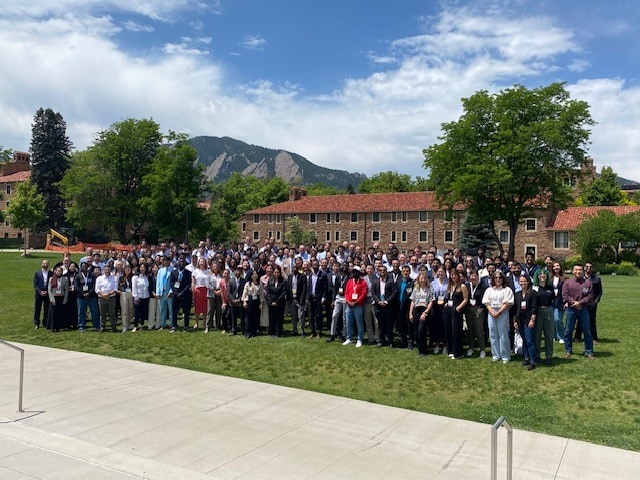
[Image above] Credit: Simon Rekhson
The American Ceramic Society (ACerS) Board of Directors unanimously voted to award Oleg Mazurin Honorary Membership in the Society at its regular meeting at ICACC18 in Daytona Beach, Fla. Arun Varshneya, 2014 Distinguished Life Member, nominated Mazurin for the honor, noting in his nomination that Mazurin “is one of the most respected glass scientists alive.”
Mazurin grew up in Russia during the communist regime. He made significant contributions to the glass science corpus in several key areas: phase separation in glass, viscosity in nearly solid range, viscoelastic and structural relaxation in glass transition, electrical conductivity, and glass-to-metal seals.
Among his key accomplishments was a computer algorithm he wrote to visualize progress in volume changes due to structural relaxation in glass as a function of thermal history.
Mazurin also authored and coauthored several hundred technical journal articles and publications, along with 15 books.
His most notable publications include:
- Phase Separation in Glass;
- Glasses and the Glass Transition; and
- Handbook of Glass Data, Volumes 1–4, which include Silica Glass and Binary Silicate Glasses, Single-Component and Binary Non-Silicate Oxide Glasses, Ternary Silicate Glasses, and Ternary Non-Silicate Glasses.
Mazurin’s other noteworthy accomplishment was the conversion of his handbooks into the SciGlass database—a comprehensive compilation of more than 500,000 silicate, nonsilicate, and nonoxide glass compositions, which is used by glass scientists worldwide to study glass properties and data through well-developed models.
Mazurin also has been recognized for his lifetime achievements in two publications. An article highlighting his accomplishments in the Journal of Optical Technology describes Mazurin as having an “exceptional gift to recognize the most fundamental current problems in the science of glass.”
Glass scientist Simon Rekhson authored a dedication article in the Journal of Non-Crystalline Solids, outlining Mazurin’s contributions to glass science—and especially the impact he had on fellow workers at Leningrad State Laboratories.
Mazurin participated over the years in numerous international glass science meetings, including as an invited speaker at several ACerS meetings. He lectured at several U.S. institutions, including Alfred University, and scheduled classes with students to interact and exchange ideas.
Perhaps Varshneya summarizes Mazurin’s life and accomplishments most succinctly in his nomination: “He embraced the cultures of thought and development of sciences for the benefit of mankind that many of us dream about.”
Congratulations to Oleg Mazurin on your Honorary Membership—well done!
ACerS awards Honorary Memberships to individuals who have contributed significant technical or public service achievements in the ceramic arts and sciences. Honorary Members are elected by the Board of Directors and must have been non-members of the Society for more than the previous five years prior to consideration. The most recent Honorary Membership Award was presented to Jack G. Simon in 2009.
To view past Honorary Membership Award recipients, visit this link.
Author
Faye Oney
Spotlight Categories
- Member Highlights


